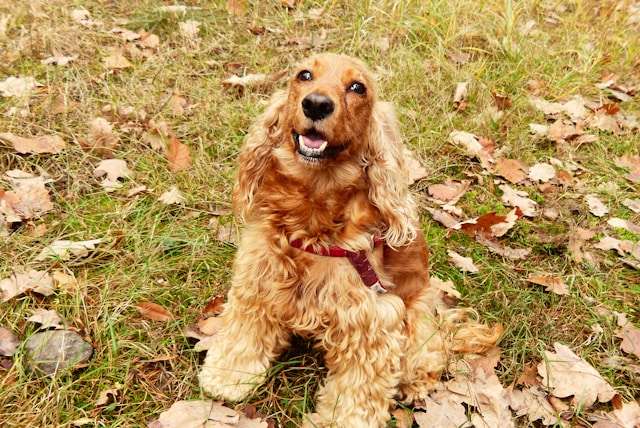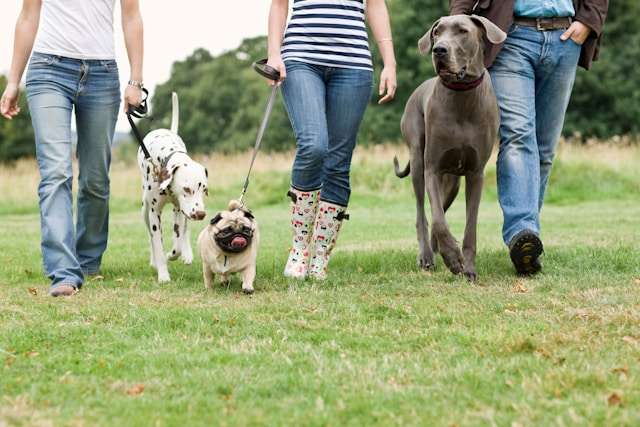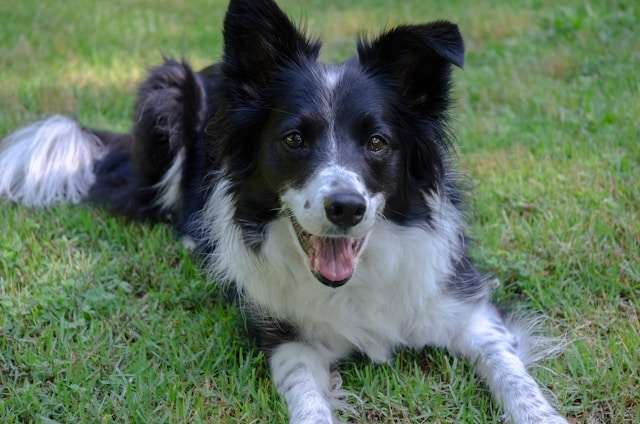Are Boxers Good Dogs? Exploring Their Traits and Suitability as Pets
Are Boxers Good Dogs? Boxers are beloved companions known for their playful nature and loyal disposition. These muscular, medium-sized dogs have captured the hearts of many families with their expressive faces and energetic personalities. Due to their affectionate temperament, intelligence, and protective instincts, boxers make excellent family dogs.
While Boxers can be great pets, they require proper training and socialization from an early age. Their high energy levels require regular exercise and mental stimulation to thrive. Boxers are generally good with children and other pets when raised together, but their boisterous nature may be overwhelming for young kids or smaller animals.
We believe Boxers can be beautiful additions to active households that can provide them with the attention, exercise, and training they need. Their loyalty and intelligence make them great companions, but potential owners should be prepared for their high energy levels and exercise requirements.
Table of Contents

Key Takeaways
- Boxers are affectionate, intelligent, and protective family dogs that require proper training and socialization.
- These energetic dogs need regular exercise and mental stimulation to thrive in a home environment.
- Boxers can be great with children and other pets, but their boisterous nature may require supervision with young kids.
Origin and History
The Boxer breed has a fascinating history rooted in Germany. We’ll explore the muscular dogs’ ancestral roots and trace their development into the beloved companions we know today.
Ancestry of Boxers
Boxers descend from the now-extinct Bullenbeisser, a powerful hunting dog used in Germany. These ancestors were larger and heavier than modern Boxers. Breeders crossed Bullenbeissers with smaller, mastiff-type dogs to create a more agile and versatile working breed.
The resulting dogs excelled in various roles, including:
- Hunting large game
- Controlling cattle in slaughterhouses
- Performing as circus dogs
By the late 19th century, early versions of the Boxer emerged. These dogs retained the strength of their ancestors while developing a more compact and athletic build.
Breed Development and Recognition
German breeders refined the Boxer in the late 1800s, focusing on creating a loyal family companion and capable working dog. The first Boxer club was formed in Munich in 1895, establishing breed standards and promoting the dogs’ qualities.
Critical milestones in Boxer development include:
- 1904: Recognition by the American Kennel Club
- Early 1900s: Increasing popularity in Europe and North America
- World War I & II: Use as military dogs, further showcasing their versatility
We’ve seen the Boxer evolve from a robust hunting dog to a well-rounded breed prized for its strength, intelligence, and affectionate nature. Today, Boxers rank among the most popular dog breeds worldwide.
Breed Overview
Boxers are distinctive medium-to-large dogs known for their muscular build and expressive faces. We’ll explore their physical characteristics and breed standards to give you a clear picture of this popular breed.
Physical Appearance
Boxers have a square muzzle and a strong, muscular build. Their coat is short and smooth, typically coming in fawn or brindle colors. Some Boxers may have white markings.
Boxers’ heads are proportionate to their bodies, with a blunt muzzle and slightly undershot jaw. They have dark, alert eyes and high-set ears that fold forward.
The breed’s body is compact and powerful, with a deep chest and well-sprung ribs. In countries where it’s allowed, its tail is typically docked short.
Breed Standards
Boxer males stand 22.5-25 inches tall at the shoulder, while females are 21-23.5 inches. Adult males weigh between 65-80 pounds, with females slightly lighter at 50-65 pounds.
The American Kennel Club recognizes two coat colors:
- Fawn: Varying shades from light tan to mahogany
- Brindle: Fawn background with black stripes
White markings are acceptable but shouldn’t exceed one-third of the coat. Black masks are standard and considered desirable in the show ring.
Boxers have a life expectancy of 10-12 years. Their temperament should be alert, self-assured, and fearless, yet friendly. Breed standards emphasize the importance of proper structure for the Boxer’s athletic abilities.
Behavior and Temperament
Boxers are known for their distinctive personality and behavioral traits. Their unique combination of qualities makes them popular family companions.
Boxer Temperament
Boxers are intelligent, high-energy, playful dogs that thrive on activity and companionship. They are alert and bright, often displaying a silly side that endears them to their owners.
Boxers are also known for their courage. By nature, they are protective and will fiercely guard their family and home, making them excellent watchdogs.
Despite their strong protective instincts, Boxers are generally not excessive barkers. They tend to bark only when they perceive a genuine reason.
Interaction With Family and Other Pets
Boxers are loyal pets that form strong bonds with their families. They particularly enjoy being in the company of their owners and can become deeply attached.
Their affectionate nature makes them excellent family dogs. Boxers are known to be patient and gentle with children, though supervision is always recommended due to their energetic nature.
Proper socialization is key when it comes to other pets. With early training, Boxers can learn to coexist peacefully with other household animals.
We note that their high energy levels require regular exercise and mental stimulation. Without adequate outlets for their energy, Boxers may develop undesirable behaviors.
Training and Exercise Needs
Boxers require dedicated training and plenty of physical activity to thrive. Their energetic nature and intelligence make them responsive to proper training techniques while demanding a robust exercise regimen.
Training Techniques
Boxer dog training should focus on positive reinforcement methods. We recommend starting with basic commands like ‘sit’, ‘stay’, and ‘heel’. Consistency is key – short, regular sessions of 10-15 minutes work best for this breed.
Boxers respond well to reward-based training. Use treats, praise, and play as incentives. Establish yourself as the pack leader early on.
Socialization is crucial. Expose your Boxer to various people, animals, and environments from a young age. This helps prevent behavioral issues later in life.
Boxers are naturally clean dogs, so potty training is typically straightforward. Take them out frequently, especially after meals.
Exercise Regimen
Boxers are high-energy dogs that require significant daily exercise. We suggest at least two exercise sessions daily, with opportunities for running 2-3 times a week.
Suitable activities include:
- Brisk walks (30-60 minutes daily)
- Jogging or running
- Fetch games
- Agility training
Mental stimulation is equally important. Puzzle toys and obedience training can help keep their minds active.
Be cautious in extreme temperatures. Boxers are sensitive to heat and cold due to their short coats.
For apartment dwellers, ensure your Boxer gets enough outdoor time. A fenced yard is ideal but unnecessary if you’re committed to regular outings.
Health and Care
Boxers require attentive health monitoring and proper care to thrive. Regular veterinary check-ups, a balanced diet, and consistent grooming are essential for maintaining their well-being and preventing common health issues.
Common Health Problems
Boxers are prone to several health conditions that owners should be aware of. Heart problems like aortic stenosis and arrhythmogenic right ventricular cardiomyopathy can affect the breed. We recommend regular cardiac screenings to catch these issues early.
Cancer is another concern for Boxers, particularly mast cell tumors and lymphoma. Vigilant monitoring for unusual lumps or changes in behavior is crucial.
Hip dysplasia and degenerative myelopathy can impact a Boxer’s mobility. Regular exercise and maintaining a healthy weight can help mitigate these risks.
Hypothyroidism is also common in Boxers. Symptoms include weight gain, lethargy, and skin problems. Blood tests can diagnose this condition, which is manageable with medication.
Nutrition and Diet
A balanced diet is crucial for maintaining a Boxer’s health. We recommend high-quality dog food formulated for large, active breeds. Portion control is essential to prevent obesity, which can exacerbate joint problems.
Boxers benefit from foods rich in:
- Protein for muscle maintenance
- Omega-3 fatty acids for skin and coat health
- Glucosamine and chondroitin for joint support
Avoid feeding Boxers human food, as some items can be toxic. Always provide fresh water and consult a veterinarian about specific dietary needs, especially for Boxers with health conditions.
Grooming and Maintenance
Boxers have short, smooth coats that are relatively easy to maintain. We recommend brushing them weekly to remove loose hair and distribute natural oils. This breed sheds moderately, so regular grooming helps keep shedding under control.
Bathing should be done as needed, typically every 2-3 months or when they get dirty. Over-bathing can strip their coat of natural oils.
Dental care is crucial for Boxers. Regular tooth brushing and dental chews can help prevent periodontal disease. Nail trimming should be done monthly or as needed to avoid discomfort and mobility issues.
White Boxers may require extra skin care, as they are more prone to sunburn. We advise using pet-safe sunscreen on exposed areas when spending time outdoors.
Adoption and Breeding
When considering adding a Boxer to your family, it’s crucial to understand the options available for obtaining one. We’ll explore how to find a reputable breeder and the various adoption alternatives.
Choosing a Reputable Breeder
Finding a responsible Boxer breeder is essential for ensuring the health and temperament of your new puppy. Reputable Boxer breeders prioritize the well-being of their dogs and follow ethical breeding practices. We recommend looking for breeders who:
• Are registered with the American Boxer Club • Provide health certifications for their breeding dogs • Allow you to visit their facilities • Offer a health guarantee for puppies
Responsible breeders will ask you questions about your lifestyle and experience with dogs. They should be knowledgeable about the breed and willing to provide ongoing support.
Adoption Options
Adopting a Boxer can be a rewarding experience and gives a deserving dog a loving home. Boxer rescue organizations specialize in rehoming these beautiful dogs. We suggest considering the following adoption routes:
• Breed-specific Boxer rescues • Local animal shelters • Online adoption platforms like Petfinder or Adopt a Pet
Adult Boxers are often available for adoption and can be an excellent choice for many families. They typically have established personalities and may already have some training.
When adopting, be prepared to undergo a screening process. This helps ensure a good match between the dog and the owner.
Frequently Asked Questions
Boxer dogs have distinct traits that impact their suitability as family pets. Potential owners should consider their health, behavior, and care requirements.
What characteristics make Boxers suitable or unsuitable for families?
Boxers are loyal, patient, and protective, making them excellent family companions. Their playful nature and high energy levels suit active households.
However, their exuberance may be overwhelming for very young children or elderly family members. Boxers also require consistent training and socialization to manage their boisterous behavior.
How do Boxers typically behave around young children?
Boxers are generally great with children when properly socialized. They’re patient, protective, and enjoy playtime.
We recommend supervising interactions between Boxers and young kids. Their energetic nature might accidentally knock over small children during play.
What are common health concerns for Boxer dog owners?
Boxers are prone to specific health issues. These include hip dysplasia, heart problems, and certain cancers.
Regular vet check-ups and a balanced diet are crucial for maintaining their health. We advise owners to be aware of breed-specific health risks and closely monitor their Boxer’s condition.
How much grooming and maintenance do Boxers require?
Boxers have short, smooth coats that are relatively low-maintenance. They’re average shedders and require weekly brushing.
Regular nail trimming, teeth cleaning, and ear checks are essential. Boxers may drool, so occasional face wiping might be necessary.
Can Boxers be considered reliable guard dogs?
Boxers make excellent watchdogs. Their protective instincts and alertness make them naturally inclined to guard their family and property.
With proper training, Boxers can be reliable guard dogs. They’re known to be brave and will confront perceived threats.
Are Boxer dogs prone to aggression, and how is it managed?
Boxers are not typically aggressive by nature. However, like any breed, they can develop aggressive tendencies without proper socialization and training.
We recommend early socialization and consistent, positive reinforcement training. This helps manage their energy and ensures they develop into well-behaved companions.







14 Comments